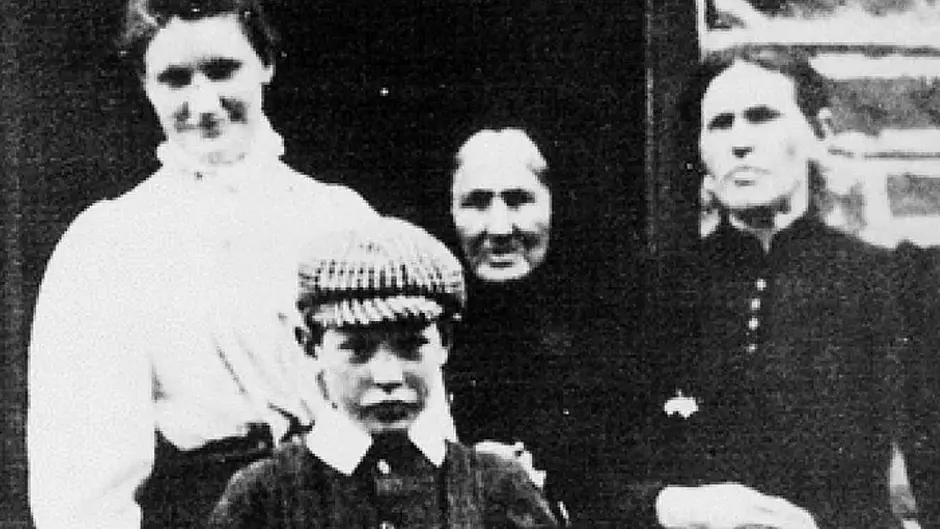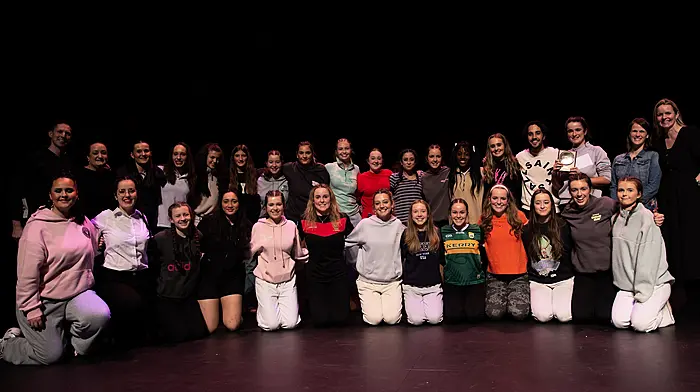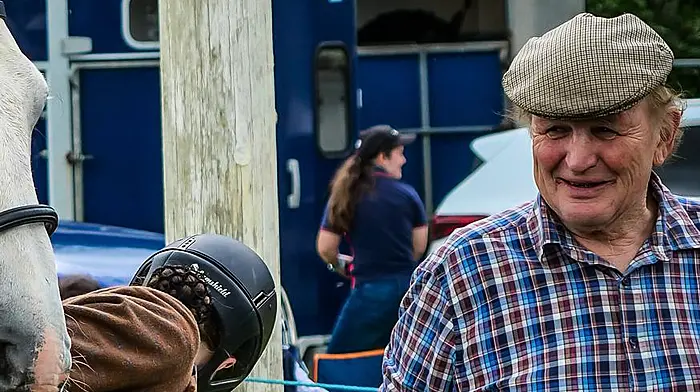BY DYLAN MANGAN
DETAILS of Michael Collins’ childhood and insight into the man he was can be found in the memoir of his older sister, the late Mary Collins Powell.
Ranging from the day he was born up until just months before his death, the memoir provides a different look at a man so revered around the world for his fearlessness and patriotism.
In the memoir, Mary Collins Powell tells of her memories of a young mischievous Michael who, over time, became more serious as he felt the ‘responsibilities of his position.’
This is Michael Collins as told by his family.
Mary Collins was nine years old when Michael was born in what she said were miracle conditions, as there was ‘no doctor, no trained nurse and mother and baby well and comfortable!’ Michael was adored by the family, with his old Uncle Paddy predicting the future upon his birth, saying: ‘Be careful of this child, for he will be a great and mighty man when we are all forgotten.’
Young Michael was a lively and smart character, who stuck close by his father from the time he could walk. As an infant he helped where he could around the house, with one story from Mary illustrating his resourcefulness from an early age.
Having been left in charge of the house, Mary had done all her odd jobs before she realised they had no potatoes for the dinner. She went outside to find a large bucket of potatoes freshly dug by a young Michael.
‘In later life when I heard of infant prodigies playing the piano and composing music at four years of age, I wondered could they dig potatoes as my small brother had done,’ wrote Mary.
The family ‘were almost completely self-supporting’ and Michael, as he grew older, contributed to the upkeep of the house while also broadening his knowledge. He became a member of the Irish Republican Brotherhood ‘at a very early age’ and by the time WWI started in 1914, was working very hard at organising Irish societies.
Mary writes of how his playful nature mixed with a fierce patriotism, saying ‘he loved to tease people, but I never knew him to belittle a fellow countryman.
‘He always professed hatred for everything English, though he actually got on very well with English people.’
Michael’s father died when he was young, but distilled in him a true sense of Irish pride – his favourite song was The Irishman – ‘So generous as an Irishman. His hand is rash. His heart is warm and honesty is still his pride. None more regrets his deeds of harm and none forgives with nobler pride.’
According to Mary, ‘till the day an Irishman shot him, Michael thought his countrymen possessed these qualities.’
Being related to Michael Collins was not an easy task during his later years. Mary writes of how ‘the eyes of the world were now turned on Ireland – a little island on the Western Ocean – where a small band defied England to free their own small nation – as England had gone to war with Germany in defence of small nations.’
Police were regular callers to Mary’s house in search of information about Michael’s whereabouts. One such call came on Stephen’s Day 1920, when 12 RIC officers appeared at the door. ‘I felt so weak with fear I was obliged to sit down and tell my visitors to light the gas,’ Mary said. ‘I give you the details of this raid to show you what the women of Ireland went through in those days.’
While Mary’s memoir doesn’t include her memories around the time of Collins’ death, it does offer a unique insight into the man behind the legend and reaffirms his devotion to the fight for an independent Ireland.
In 1920 he visited his sister, telling her ‘whatever happens to us, something is going to come of these efforts and I hope your children will be able to make a living in their own country.’ History shows that they could, and did just that.







